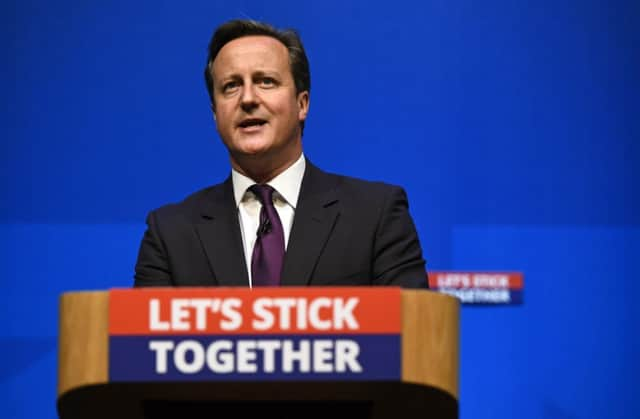Fiona McCade: Reasons for the Yes vote momentum


For as long as I can remember, in almost every poll I saw – until this year – support for an independent Scotland versus staying in the Union was always approximately 25 per cent versus 75 per cent. All the Better Together campaign had to do was maintain that balance. That’s all they had to do. But look what happened.
So 45 per cent of Scots voted Yes. Support for independence shot up about 80 per cent. That’s an awful lot of people who changed their minds, but I think I understand why.
Advertisement
Hide AdAdvertisement
Hide AdFirstly, the Better Together campaign never quite got it together. No matter that Jim Murphy (Labour) didn’t see the irony of campaigning for “Better Together” while refusing to share a platform with any Conservative. Nobody seemed to have a clear idea of what this great Togetherness actually meant.
Never has No seemed more negative. Better Together were keen to tell us that a Yes vote would plunge us into a terrifying unknown, but they lacked a single, unanimous, confident voice to outline their positive vision, plans and enthusiasm for Scotland’s future.
Even though the polls warned that the gap was narrowing, Better Together concentrated on the perils of independence, until that fateful Sunday when it appeared that Yes might have taken a 2 per cent lead. Suddenly, all three UK party leaders scurried northwards – pausing just long enough to change their soiled trousers – pushing the Scottish party leaders aside, weeping publicly about their deep love of Scotland and how they would be personally devastated not to be able to come grouse shooting/rely on Scotland’s support for Labour, etc, ever again. Then they started gibbering about No not actually meaning No; now it meant a sort of Yes, and there would be “new powers” but they couldn’t be more precise just yet. Finally, alongside a raft of desperate, last-minute pledges, they released the big beast, and Gordon Brown ambled on to the public stage, growling something about home rule and simultaneously saving the Union and, even more incredibly, his political reputation.
Secondly, Scots don’t like being told what to do – and especially what we can’t do. For example, there was to be no pound for us, despite the likes of Australia, New Zealand and Canada freely using UK currency after they first became independent. No, Scotland would not be afforded the same courtesy, because Scotland was a bad, naughty, ungrateful country. If we had the temerity to break up the gang, nobody would be playing with us ever again.
So, 45 per cent of us flashed our woad-covered backsides at George Osborne. But the majority of us voted No, to Cameron’s palpable relief. How long that relief lasts is up to him. That winning vote is still a bloody nose for Westminster. It says Scotland wants Union, but we want a new and better Union, properly defined.
So, once-proud Cameron and Co, off you go homeward, to think again.